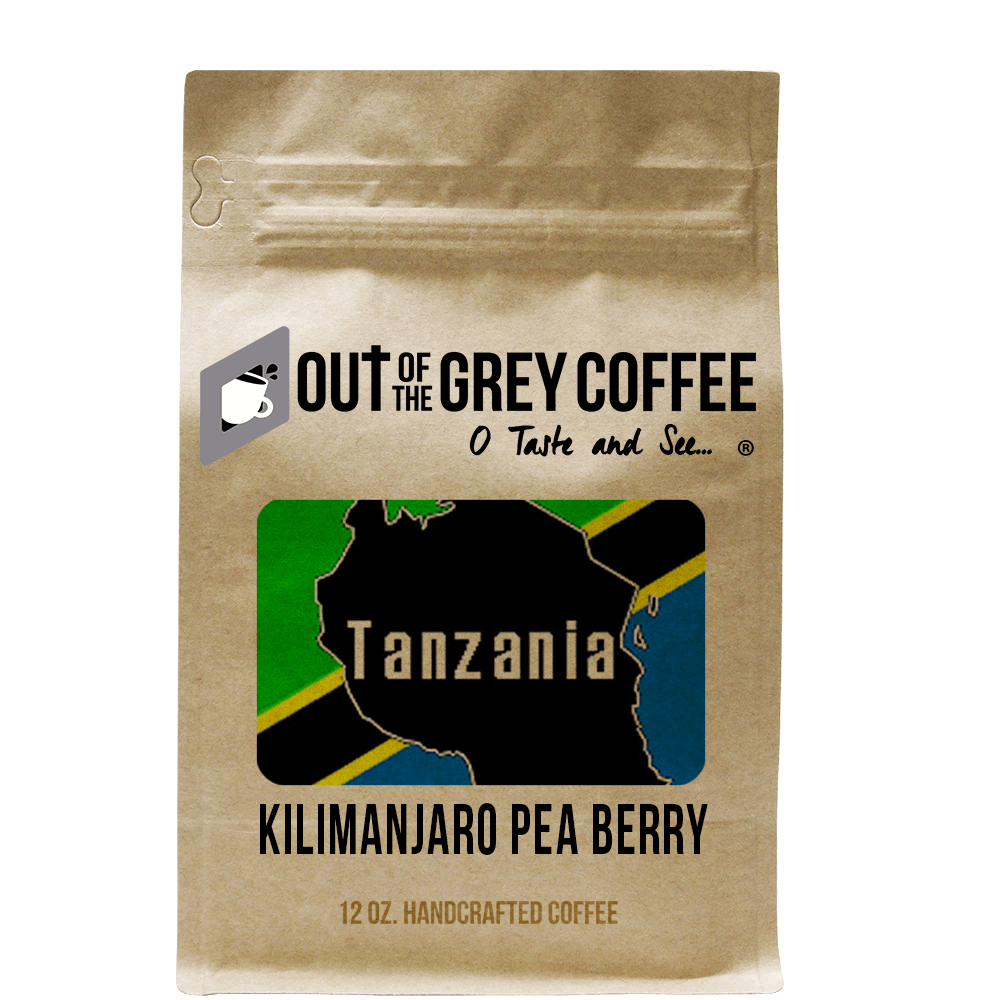



Single Origin - Tanzanian Kilimanjaro Pea Berry - Specialty Coffee
$22.99 - $23.48
Smooth, sweet and savory with tart acidity, flavors of dark chocolate, plum and peach.
Industry Review: The Coffee Attendant
Roast: Dark Medium
Processing: Washed and Sun Dried
Altitude: 1800 - 2000 M.A.S.L.
Harvest: July - October
12 oz. Handcrafted Specialty Coffee
Tanzanian Pea Berry is a wonderful coffee, shade-grown on the slopes of Mt. Kilimanjaro and sourced from small farmers in Tanzania, East Africa, who are paid three times fair-trade value!
ootgCoffee has not had a terribly active sourcing strategy in Tanzania, opting instead to buy for cup quality and profile, and leaning heavily on the pea berry market to fill our offerings from this producing country. Recently, however, we have begun exploring microlots and farm-specific lots, seeking the complex acidity and juicy texture we know the best of these coffees can have. We hope to continue leaving no rock unturned and no cup un-tasted until we discover just the right partnerships and are able to bring in the best-quality Tanzanian coffees we can find.
HISTORY
With its relatively close proximity to Ethiopia, and its shared border with Kenya, some of Tanzania’s population has had a long history and culture relationship with coffee, namely the Haya people, for whom the plant was not used so much as a beverage as a chewed fruit. Coffee (probably Robusta) was grown for this domestic purpose until German colonists mandated that farmers grow Arabica coffee as a cash crop, spreading the plants’ reach within the country and developing the industry around Mount Kilimanjaro.
Mount Kilimanjaro, a dormant volcano in northern Tanzania, is the highest peak in Africa at 19,330 feet. Kilimanjaro’s lower slopes provide fertile soil to grow Tanzania Pea Berry coffee, and the climate provides excellent conditions for coffee trees to thrive. These wet-processed beans flourish in this precise climate ideal for growing such pea berry coffee beans. The pea berry bean is carefully selected for its rich, distinguished flavor, giving this coffee optimal taste and aroma.
Germany lost control of the colony to the British after the First World War, and the British attempted to develop a more efficient and profitable coffee industry along the lines of Kenya’s. Cooperatives of smallholder farmers started to organize in the 1920s to try to improve market access, but it was many years before Tanzanian coffees really caught on internationally.
In 1964, after both countries achieved independence from Britain, Tanganyika and Zanzibar were combined to establish the Republic of Tanzania—hence the country’s name, Tan/Zania. Growers attempted aggressive growth in the 1970s but had difficulty increasing production. The 1990s saw efforts to reform and privatize coffee exports, allowing growers to sell more directly. Today, in most of the Western world, Tanzanian coffees are famous primarily as separated-out pea berry lots.
PEA BERRIES
Tanzania Kilimanjaro Pea Berry is special because it is so rare. Only about 5% of coffee beans are pea berry beans. Most coffee beans are born twins. Within each cherry on the coffee tree, two beans are grown side by side, resulting in the flat face of most beans. Pea berries, however, occur when only one of the two seeds are fertilized, growing on its own without anything to flatten it. They are individualists, the lone guns of the coffee world. Because of their independence, each pea berry is infused with all the assets normally reserved for two beans.

